- Home
- Heather Graham
Blood Night Page 4
Blood Night Read online
Page 4
When they approached him where he stood behind the cash register, the man set the back of his hand theatrically to his forehead.
“I know who you are!” he proclaimed in a dramatic tone.
“You do?” Andre inquired politely.
“Americans,” Smith said as if it were an accusation.
“That we are.”
Father Faith set both hands on the counter, shaking his head. “You’re here because of the dreadful situation going on. I’m afraid more will fall into grave danger. Because—forgive me, I don’t wish to be offensive—people come here fascinated by the malevolence that lurks, brought to life by…evil people.”
“I definitely believe in evil people,” Andre agreed.
“The police need to be looking for Satanists,” Smith continued as if Andre hadn’t spoken. “They bring evil unto the Earth.”
“How do they recognize a Satanist when they see one?” Cheyenne asked.
His gaze shifting dramatically in her direction, Smith pointed two fingers toward her and then toward his own eyes. “You look deep,” he said. “There’s something back there. Something that gleams. That shows a communion with the devil.”
Cheyenne gasped as if enthralled. “You really believe a vampire has been raised from the dead?”
He regarded her solemnly. “I never deny possibilities. Very bad things are happening here. Have happened. Seriously, dear lovely lady, this is not a good time for Americans to be in London—at Highgate.”
“Thank you for the warning,” Cheyenne said. She smiled and gestured to the shelves. “Well, what do I need to protect myself?”
Smith glanced at Andre as if waiting for approval.
“Everyone should be protected.” Andre nodded.
William Smith hustled to retrieve several of his kits, laying them out on the counter and describing the different components and their uses—as he had done with the customer before them.
Everything was outrageously expensive, but Cheyenne didn’t say so.
She listened intently, nodding and frowning in concentration.
“I’ll have to think on this,” she said finally when he finished his spiel and turned to watch her expectantly. “That’s…well, frankly, a lot of travel money.”
“Think on it,” he said. Then he reached inside one of the kits. “This. I insist you take. From me. A welcome gift to our friends from across the pond.”
It was a silver necklace.
Cheyenne demurred. “I’m sorry. I can’t take anything so valuable.”
Smith placed it on the counter and shook his head. “It looks like silver, but it’s a cheap metal. And it will last for your stay here, I believe. Pull the lower section of the cross.”
Glancing at Andre, she picked it up and did as Smith requested. The lower portion of the cross separated to reveal a small but sharp dagger.
Smith returned to his Father Faith persona, more mystic than shopkeeper. “It just might save your life.”
“I—”
“Oh, take it, Special Agent Donegal,” he said, causing her to arch her brows.
He smiled. “I’m friends with Inspector Claude Birmingham, Inspector Michael Adair’s partner. Birmingham considers the two of you to be a bit daft and didn’t want to meet with you. I told him it would be his bloody loss, but the bugger is a bit of a prig, you know. Knocks my shop, but I do quite well here. Ah, and he’ll leave you be. Much as he mocks me, he’s still my friend. I knew you’d show up. Please, do take this little gadget, Special Agent Donegal. A sign we’ve long ago forgiven that whole Revolution thing, you know?”
She smiled. “Sure. And thank you.”
“If it’s quite all right with you, sir,” he inquired of Andre.
Andre shrugged. “Cheyenne makes her own decisions in all things. But it’s a lovely gesture. If she wants my opinion.”
“Brilliant. Then be off, my new friends. I believe you have a tour coming up.”
They thanked Smith and left the shop.
“What do you think?” Cheyenne asked.
“I think it’s an interesting gadget. And you never know, that’s a pretty damned sharp little blade. It could come in handy.”
“I mean about the man.”
“Well, I know I don’t like Birmingham.”
“We don’t know him.”
“It wasn’t his place to tell others what we were doing.”
“Ah. Maybe he thinks we need looking after.”
“I don’t know. I don’t like it. Anyway, we’ve got three minutes. We need to hurry down the lane. I think the main entry is ahead.”
And it was. Huge, stark, and in Gothic decay despite revitalization, the main entry awaited them. They rushed ahead, ready to meet their guide.
And enter the Highgate realm of the dead.
Chapter 4
Cheyenne quickly determined that Monte Bolton was a good guide. From the start, he seemed eager to meet them, curious, friendly, and ready to answer any questions.
He was in his early forties but moved with the agility and enthusiasm of a much younger man and was obviously very knowledgeable.
Cheyenne immediately liked him and his easy manner.
He wore a simple tailored shirt and jeans, brushing a lock of sandy hair from his forehead before they shook hands.
“I hear you two are intrigued. And I’m impressed,” he gushed. “You’re from Louisiana, right? They have quite amazing cemeteries there, as well, yes? Cities of the Dead! One day, I’ll get there.”
“Yes, we’re from Louisiana, but we live in D.C. now,” Andre told him. “And this…well, it’s huge, for one. And the landscaping…remarkable.”
“So many buried here,” Monte told him. “You don’t mind walking, do you?”
“Not at all,” Cheyenne assured him. “We’re grateful to you.”
“Not a problem. My, uh, cousin asked me to do this,” he said.
“Your cousin?” Andre asked.
“Inspector Michael Adair.” Monte lowered his voice slightly, though there was no one around to hear.
“He and old Birmingham get along all right, but Mike thinks Birmingham is being a wanker. There’s no reason you shouldn’t be here—and helping if possible. So, cousin Mikey called to make sure I gave you the old A-1 tour. And I hope to!”
“We’re sure you will.”
“The stakes are high for me, eh? I mean, you come from Louisiana. I’ve seen pictures and have read up on some of your places. Fantastic.” Again, he lowered his voice. “And this Krewe thing of yours…it’s intriguing. Do you really solve just about everything?”
“We try our hardest,” Cheyenne said.
“Deep, dark secrets of the investigations?” he asked.
“We go through the academy. We work all hours of the day. Pretty much like any law enforcement officers,” Andre said.
They headed through the cemetery, Monte pointing out various special graves, either because of the person buried there or the funerary art.
One grave with an obelisk marker set by a stunning weeping angel, caught Cheyenne’s attention. The epitaph was beautiful.
Here lies she in beauty and grace,
Kind in soul and gentle in face,
And surely now with angels she soars,
Watching over all she adores,
For goodness ruled her every breath
Stolen so cruelly, unto death.
Oh, bitter loss, while we shed tears
Let her killer know new fears
For in Heaven she will gently tread
Eternal, while flames shall fill the other with dread.
“Lovely, and so sad! I’m taking this to mean she was murdered?” she asked softly, thinking Andre was still at her side. But he was a bit away, studying a small mausoleum tomb created in the Egyptian style.
She thought he looked at the tomb but also…
Beyond it.
Monte was talking and moving ahead. “See the cherubs? Several children are buried here. There wa
s a time in London when four out of five children died at tender ages.”
Cheyenne and Andre looked at one another and smiled. Their guide assumed they were still with him, so they hurried to catch up.
Art was plentiful, diverse, and fantastic in the cemetery. There were various styles of monuments such as pianos and other instruments, those that celebrated pets and animals and, of course, weeping angels, life-size Christ statues, and children with lambs. Many graves were merely headstones, but others were so much more.
“The owners of the cemetery could no longer maintain it back in 1975, so it was closed, and the gates were locked. But, eventually, the Friends of Highgate Cemetery took over and did a tremendous amount of work restoring what they could. Imagine first the ground. It rises and falls. Over time, it shifts naturally. Trees and underbrush take over. But a good deal of work has preserved much of what was,” Monte informed them as they moved.
“It’s a beautiful place,” Cheyenne observed.
“Yes, it follows the concept of a garden cemetery. First, think back to Christian history. Burials were customarily done in churchyards, but then populations soared, and space became scarce. In England, entrepreneurs created private burial grounds, but corruption was rampant, coffins were re-used, and bodies were dumped. And, of course,” Monte said, “there were ghouls who stole bodies to sell to medical schools and then took to creating their own corpses—à la the infamous Scots, Burke and Hare! Now, the great architect—and scholar, astrologist, mathematician, and so on—Sir Christopher Wren, was ahead of his time. In the 1600s, he stated that cemeteries should be at the city limits. But after people started to complain—especially after fever outbreaks—that it was terribly unhealthy and that the dead were killing the living, the idea became far more mainstream. It took a few hundred years, more increases in population, fevers, and so on, but the great Victorian cemeteries sprung up around London. Highgate opened in 1839. There are in-ground burial spots, tombs, small family mausoleums, huge family crypts, catacombs, statues, monuments, and more.”
He stopped and spread out his arms, indicating the area where they now stood. “There is nothing else in the world like this. The Circle of Lebanon. These magnificent—or magnificently creepy—catacombs we see here, allowed for families to be together. Or individuals to be buried. The Egyptian thing—some people wanted their remains to be above ground. Remember, the Victorians were fascinated by all things Egyptian, so you have Egyptian Avenue, the beautiful arch, the chapel, and so much more. But there are so many types of graves and tombs and mausoleums and catacombs here. Approximately one hundred and seventy thousand people rest here, in fifty-three thousand graves.”
The catacombs or mausoleum that they now entered was fascinating. Coffins lined some shelves, but others were empty. Some were sealed, and some were not. Some lids were broken and hung at odd angles.
“They had an interesting problem here,” Monte continued as they wandered through the crypt. “Victorians believed that death gasses caused disease. And, so, being interred here meant being in a lead-lined coffin. But gasses built up, and they had a problem with exploding coffins. They solved that with pin holes that allowed a small bit of gas to escape, bit by bit, and small fires were lit to destroy the gasses during the first weeks.”
He stopped speaking. “Beautiful and sad. Especially here. You must remember, while restoration efforts have been massive, some things were lost.” He shrugged. “Relatives, for one. Sometimes, there are no descendants to worry about the bodies of loved ones and…coffins break, remains are lost, stones shift. Well, you’ve seen the terrain here. Underground, above ground, things change. That’s nature. And, as you know, Swain’s Lane is steep!”
“Very,” Andre agreed.
They emerged into daylight once again. “I can only imagine what it was like in the 1960s and 1970s before the Friends of Highgate Cemetery stepped in. There’s footage, of course, of the insanity when the vampire scare hit its peak, and people rushed the place by the scores, hopping the gates with their vampire-killing kits!”
He’d been grinning, but his smile faded. He looked at them, intensity in his eyes.
“I guess someone is playing vampire again, in a bloody horrid way.”
“Yes,” Cheyenne murmured.
“Any ideas? I mean, you don’t think a real vampire like old Count Dracula has truly awakened within the cemetery, do you? What with you being with the Krewe of Hunters and all.”
“We’re more into the concept that someone might like to play at being a vampire, or make it appear as if the old legend might be true,” Cheyenne said.
“No deep thoughts on it?”
“We’ve barely gotten started here,” Andre said. “But, again, we thank you. It’s good to visit the cemetery the vampire was known to haunt years ago—and is supposedly haunting again.”
Monte remained silent for a few minutes as if waiting for one of them to speak again, or ruminating on a question of his own.
“Well,” he said at last, “I’ll get you back. Oh, just so you know, it’s still a working cemetery, should you want a plot to investigate. They close down sometimes for funerals. And even where you must be with someone like me, if you have a loved one buried here, you can get a pass to…uh, visit them without the benefit of a guide.”
“Interesting,” Andre said.
“Now, you’re welcome to wander the other side,” Monte said. “Until closing. That will be at five this afternoon. But you need to see Karl Marx. His monument is a giant head!”
He led them back. Cheyenne wasn’t sure what Andre wanted to do. She was pretty sure that seeing the grave of Karl Marx—giant head or no—wouldn’t be the most important part of their day.
Turned out he did want to wander the east side of the cemetery.
They had just started off on their own when Andre said, “He’s following us.”
“Monte?”
“Let’s lose him.”
They did. Thankfully, the winding paths, trails, tombs, and overgrowth of the cemetery allowed them leeway to shake the man.
“Interesting character,” Andre said.
“Suspect?” Cheyenne asked.
“I don’t know, but something was a bit off. Anyway…he’s not lurking behind us anymore, so we need to take up position somewhere.”
“Huh?”
“Didn’t you see her?”
“Her? Who?”
“I don’t know who,” he said. “A woman. About thirty or thirty-five. Attractive, Victorian attire, blue dress, white lace.”
“No,” Cheyenne said. “But if she was on the other side of the cemetery—”
“I think she saw us and noted I saw her, as well. And I believe she started following us. There aren’t people ahead. Let’s take that path and head deeper in. She seems curious about us and might want—and be able to—talk with us.”
“All right.”
They took a path that led through a row of small family tombs, perhaps housing six to ten coffins each. The architecture of the mausoleums was gracefully Gothic. The structures surrounded by overgrown brush with trees here and there throughout the area.
They stood alone by one of the elegant, gated buildings and waited.
A moment later, Cheyenne saw her.
Whoever she was, she’d been beautiful in life, and had died long before that beauty faded.
She seemed shy and hesitant but also eager to reach them. She paused just once in the path and then came their way.
“Hello?” the woman said softly.
“Hello,” Cheyenne replied.
“You do see me. Hear me.” She smiled. “So very rare! I see people shiver when I’m near. And one young man…well, I was quite sorry. I believe I terrified him, and that was not my intent. The passage of time is so different for me now. But it has been years I believe since I have been gifted enough to find those with this particular sight.”
“I’m Andre Rousseau, and this is Cheyenne Donegal,” Andre said politely, g
iving the ghost a slight bow. “And, yes, we both see and hear you clearly.”
“Elizabeth Miller,” she said. “I am delighted to make your acquaintance.”
Cheyenne gasped softly. “Of course!” She thought of the epitaph she had read. She’d been so taken by the words that she had barely noted the name. But, yes, it had been Elizabeth. Elizabeth Miller.
“I saw your tomb on the other side of the cemetery. I’m so sorry. You died young—oh!” She fell silent, remembering the inscription on the tomb.
“Yes?”
“Life was…stolen from you. You were murdered,” Cheyenne finished softly. “I am so sorry!”
“It was 1855,” Elizabeth said. “But, please, don’t look so stricken. My dear husband lay dead of a fever, and his sister lost her senses, striking out at me. I forgave her. She was not in her right mind. It was long ago, and I’m not at all vengeful. I don’t usually haunt these decaying grounds. I have always enjoyed watching the street life in Highgate. Modern life goes on, while there remains a bit of respect for the past. Perhaps because of the culture retained in these old stones.” She smiled. “I left behind five children. My descendants come here to this day when their time comes, and I often help them move on. And I watch. Perhaps I have stayed to save another from my fate. But it seems I have failed quite miserably in that as young women have died —and I was not able to help them.”
“And still, you stay,” Andre said.
“I was well known for my hospitality and my care of others, particularly my peers and the poor,” she said lightly. “And, as I said, I like to believe the time will come when I can help. I may have failed thus far, but these killings will go on. And maybe, just maybe…”
“I am sure you will help,” Cheyenne murmured. “Lady Miller. There was a larger obelisk. I didn’t have time to read it, but I believe it was to…your husband and you, as well as other family members.”
Elizabeth inclined her head. “I was born nobility—my father was an earl—and married into it as well…as was fitting in my day. Though, truly, perhaps I have also stayed to see more. Marriage between parties of all colors, choices…it was quite sad when so many things were not acceptable. When love was not acknowledged unless it was with the right class and the right color and the right sex.”

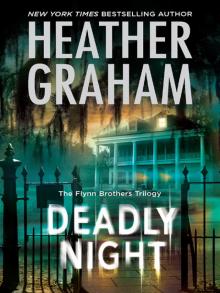 Deadly Night
Deadly Night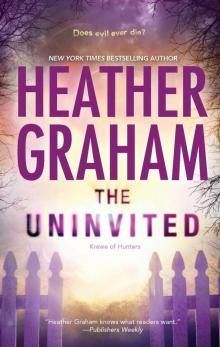 The Uninvited
The Uninvited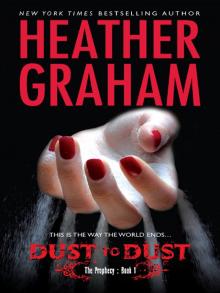 Dust to Dust
Dust to Dust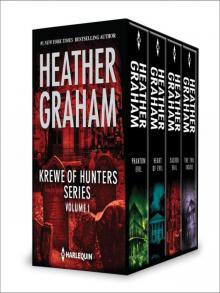 Heart of Evil
Heart of Evil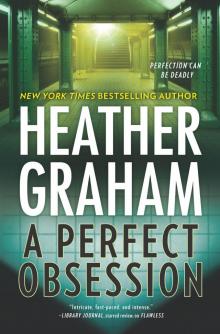 A Perfect Obsession
A Perfect Obsession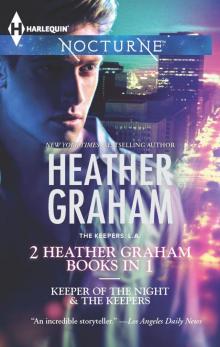 The Keepers
The Keepers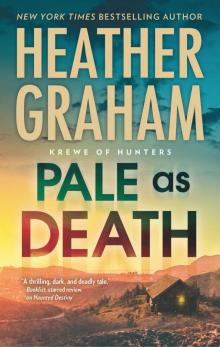 Pale as Death
Pale as Death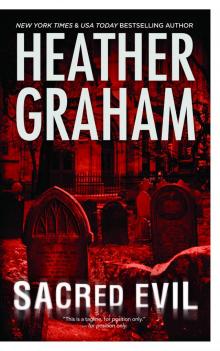 Phantom Evil
Phantom Evil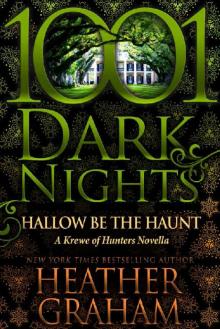 Hallow Be the Haunt
Hallow Be the Haunt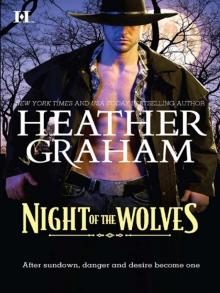 Night of the Wolves
Night of the Wolves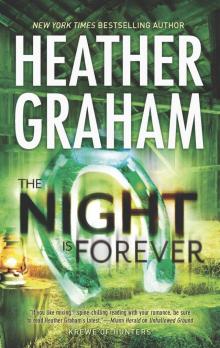 The Night Is Forever
The Night Is Forever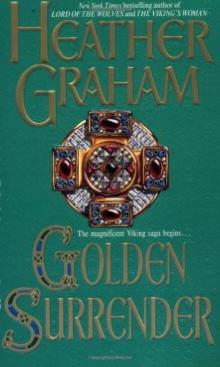 Golden Surrender
Golden Surrender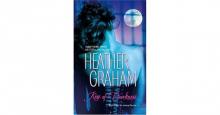 Kiss of Darkness
Kiss of Darkness Beneath a Blood Red Moon
Beneath a Blood Red Moon A Dangerous Game
A Dangerous Game Ghost Shadow
Ghost Shadow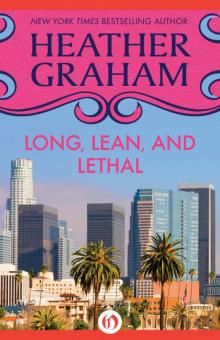 Long, Lean, and Lethal
Long, Lean, and Lethal Fade to Black
Fade to Black The Rising
The Rising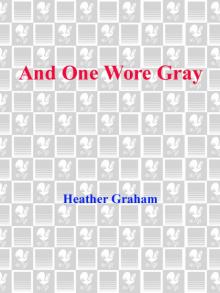 And One Wore Gray
And One Wore Gray Rebel
Rebel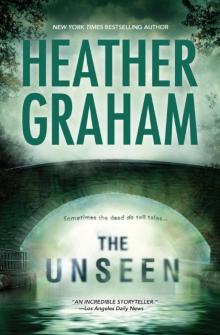 The Unseen
The Unseen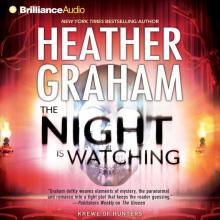 The Night Is Watching
The Night Is Watching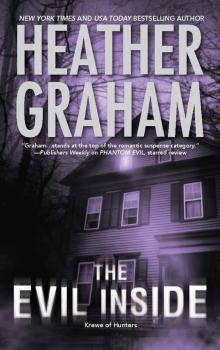 The Evil Inside
The Evil Inside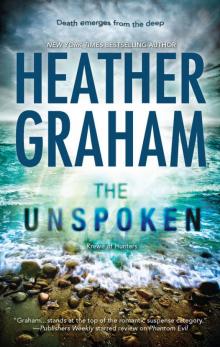 The Unspoken
The Unspoken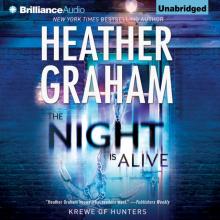 The Night Is Alive
The Night Is Alive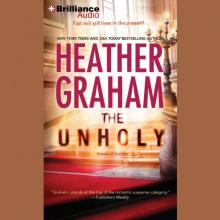 The Unholy
The Unholy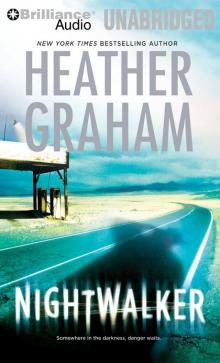 Nightwalker
Nightwalker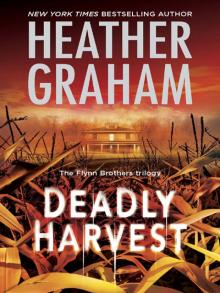 Deadly Harvest
Deadly Harvest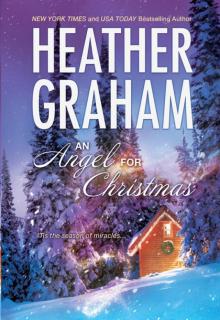 An Angel for Christmas
An Angel for Christmas A Pirate's Pleasure
A Pirate's Pleasure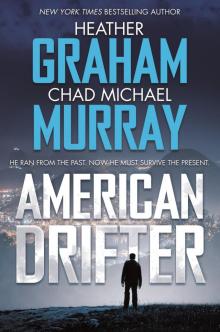 American Drifter
American Drifter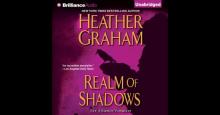 Realm of Shadows
Realm of Shadows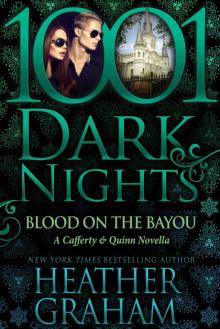 Blood on the Bayou
Blood on the Bayou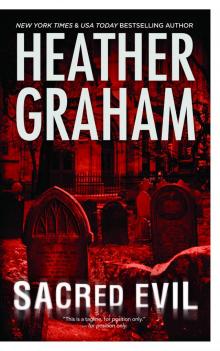 Sacred Evil
Sacred Evil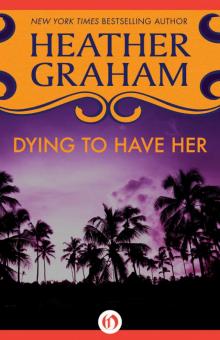 Dying to Have Her
Dying to Have Her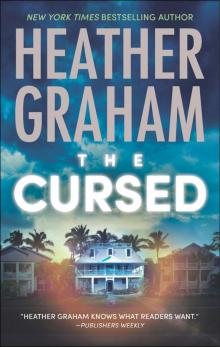 The Cursed
The Cursed Captive
Captive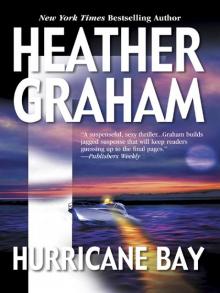 Hurricane Bay
Hurricane Bay Drop Dead Gorgeous
Drop Dead Gorgeous Ghost Memories
Ghost Memories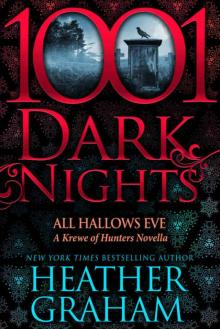 All Hallows Eve
All Hallows Eve Dying Breath
Dying Breath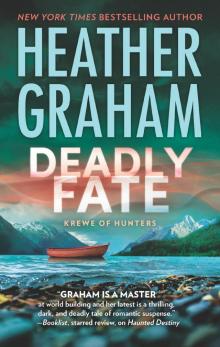 Deadly Fate
Deadly Fate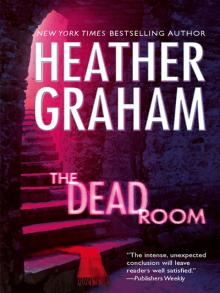 The Dead Room
The Dead Room Lord of the Wolves
Lord of the Wolves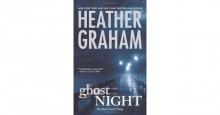 Ghost Night
Ghost Night Ghost Walk
Ghost Walk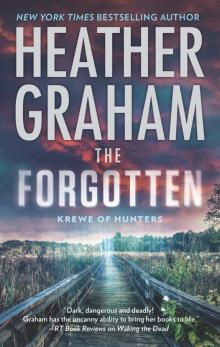 The Forgotten
The Forgotten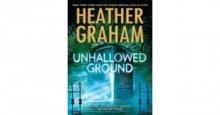 Unhallowed Ground
Unhallowed Ground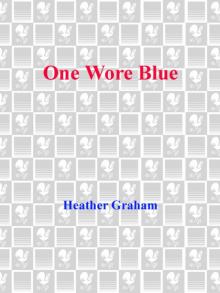 One Wore Blue
One Wore Blue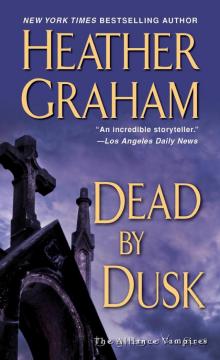 Dead By Dusk
Dead By Dusk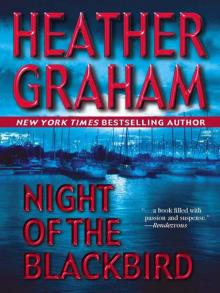 Night of the Blackbird
Night of the Blackbird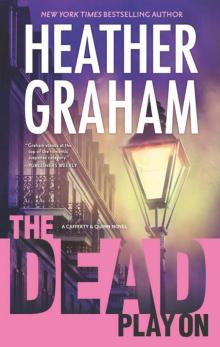 The Dead Play On
The Dead Play On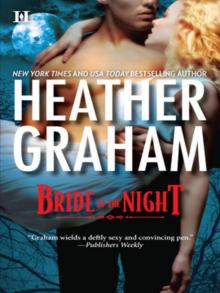 Bride of the Night
Bride of the Night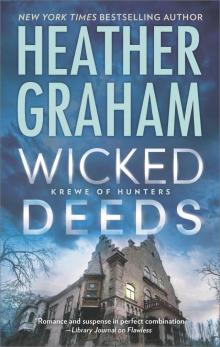 Wicked Deeds
Wicked Deeds The Forbidden
The Forbidden Triumph
Triumph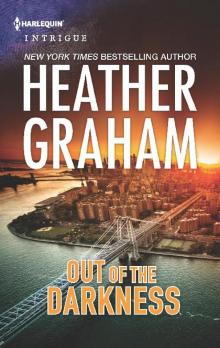 Out of the Darkness
Out of the Darkness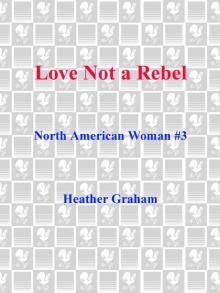 Love Not a Rebel
Love Not a Rebel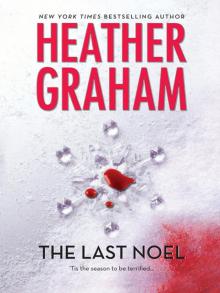 The Last Noel
The Last Noel Tall, Dark, and Deadly
Tall, Dark, and Deadly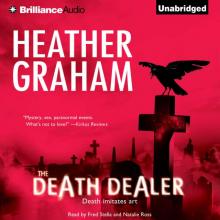 The Death Dealer
The Death Dealer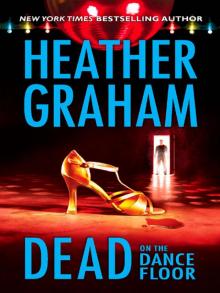 Dead on the Dance Floor
Dead on the Dance Floor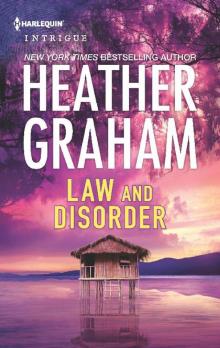 Law and Disorder
Law and Disorder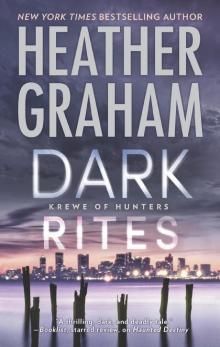 Dark Rites
Dark Rites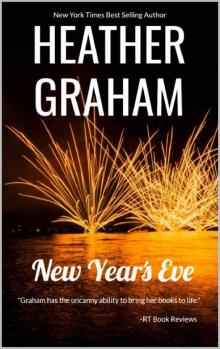 New Year's Eve
New Year's Eve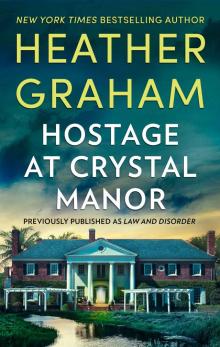 Hostage At Crystal Manor
Hostage At Crystal Manor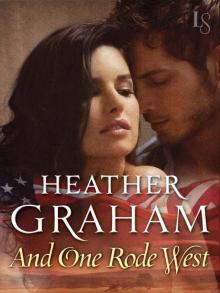 And One Rode West
And One Rode West Home in Time for Christmas
Home in Time for Christmas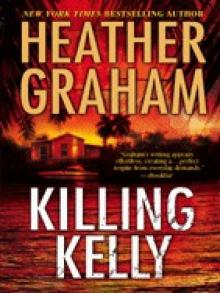 Killing Kelly
Killing Kelly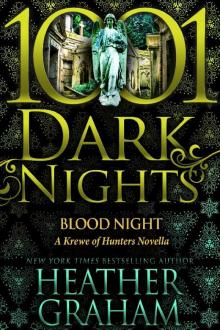 Blood Night
Blood Night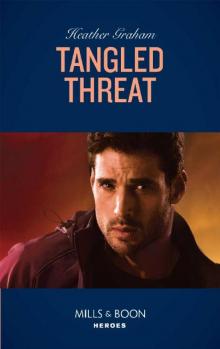 Tangled Threat (Mills & Boon Heroes)
Tangled Threat (Mills & Boon Heroes)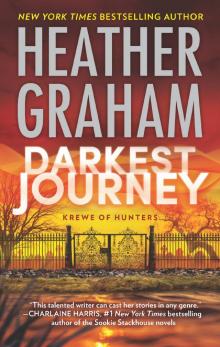 Darkest Journey
Darkest Journey Glory
Glory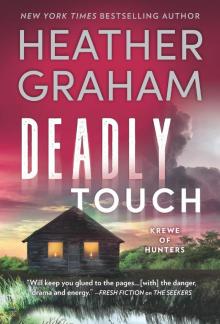 Deadly Touch
Deadly Touch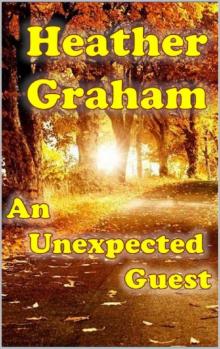 An Unexpected Guest
An Unexpected Guest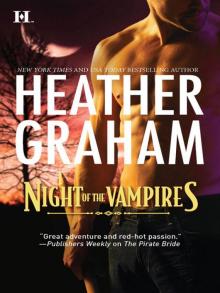 Night of the Vampires
Night of the Vampires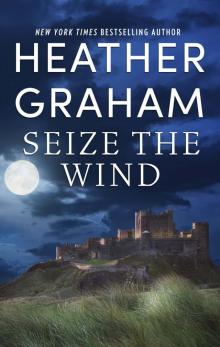 Seize the Wind
Seize the Wind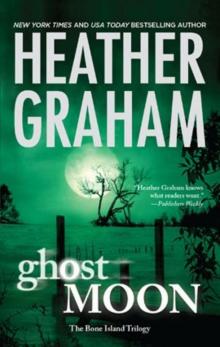 Ghost Moon
Ghost Moon The Vision
The Vision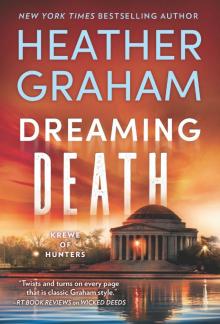 Dreaming Death
Dreaming Death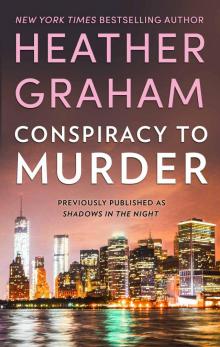 Conspiracy to Murder
Conspiracy to Murder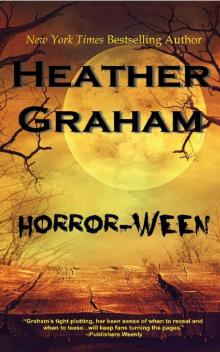 Horror-Ween (Krewe of Hunters)
Horror-Ween (Krewe of Hunters)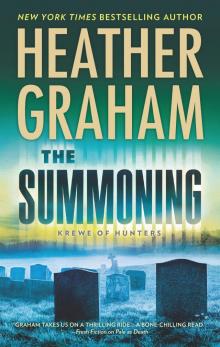 The Summoning
The Summoning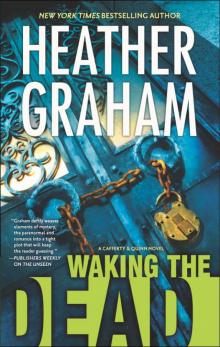 Waking the Dead
Waking the Dead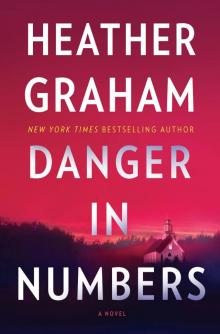 Danger in Numbers
Danger in Numbers The Hidden
The Hidden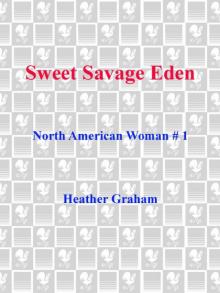 Sweet Savage Eden
Sweet Savage Eden Tangled Threat ; Suspicious
Tangled Threat ; Suspicious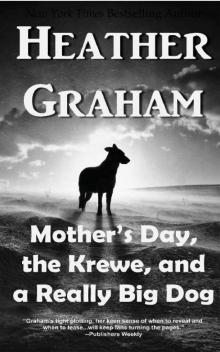 Mother's Day, the Krewe, and a Really Big Dog
Mother's Day, the Krewe, and a Really Big Dog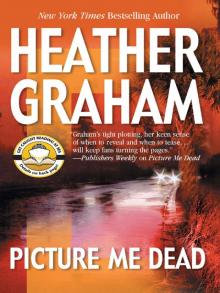 Picture Me Dead
Picture Me Dead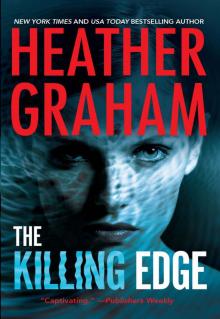 The Killing Edge
The Killing Edge St. Patrick's Day
St. Patrick's Day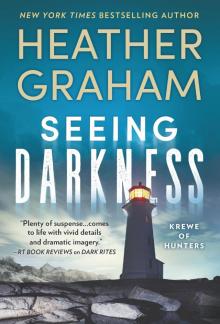 Seeing Darkness
Seeing Darkness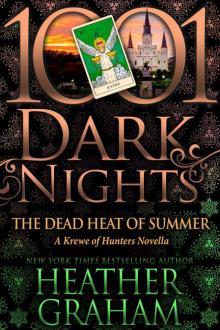 The Dead Heat of Summer: A Krewe of Hunters Novella
The Dead Heat of Summer: A Krewe of Hunters Novella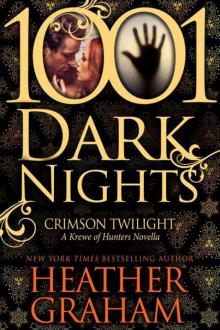 Crimson Twilight
Crimson Twilight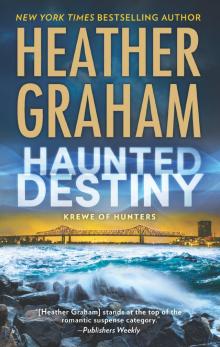 Haunted Destiny
Haunted Destiny Devil's Mistress
Devil's Mistress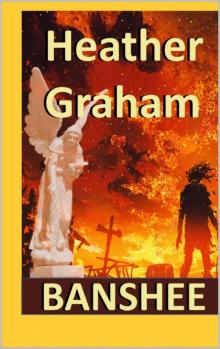 Banshee
Banshee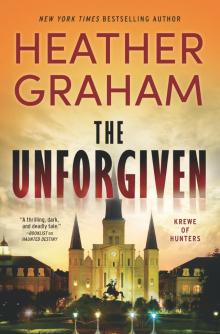 The Unforgiven
The Unforgiven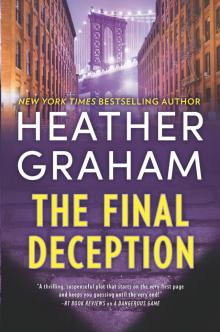 The Final Deception
The Final Deception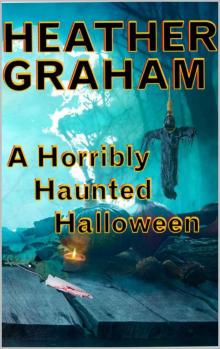 A Horribly Haunted Halloween
A Horribly Haunted Halloween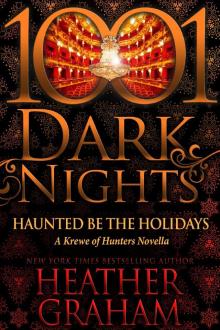 Haunted Be the Holidays
Haunted Be the Holidays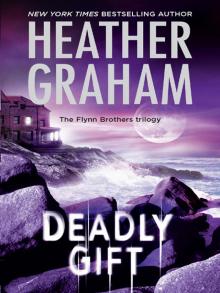 Deadly Gift
Deadly Gift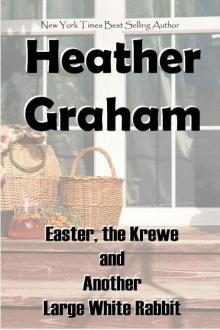 Easter, the Krewe and Another Large White Rabbit
Easter, the Krewe and Another Large White Rabbit Haunted
Haunted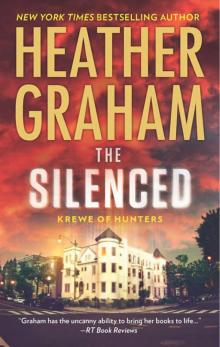 The Silenced
The Silenced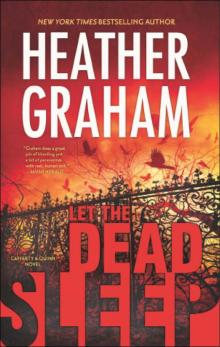 Let the Dead Sleep
Let the Dead Sleep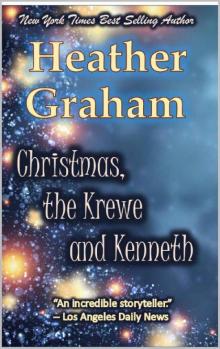 Christmas, the Krewe, and Kenneth
Christmas, the Krewe, and Kenneth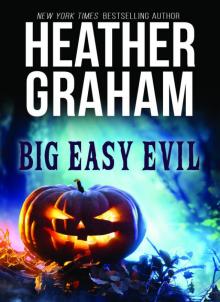 Big Easy Evil
Big Easy Evil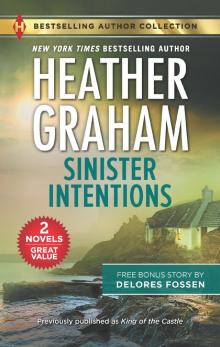 Sinister Intentions & Confiscated Conception
Sinister Intentions & Confiscated Conception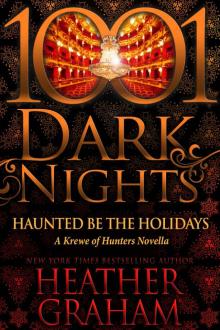 Haunted Be the Holidays: A Krewe of Hunters Novella
Haunted Be the Holidays: A Krewe of Hunters Novella Blood Red
Blood Red A Perilous Eden
A Perilous Eden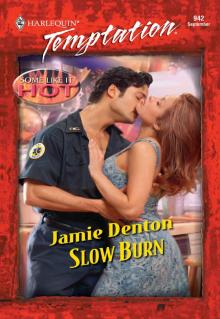 Slow Burn
Slow Burn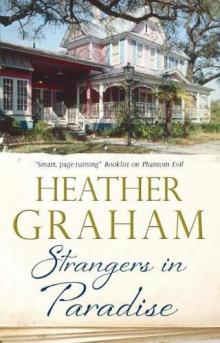 Strangers In Paradise
Strangers In Paradise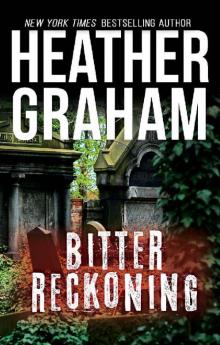 Bitter Reckoning
Bitter Reckoning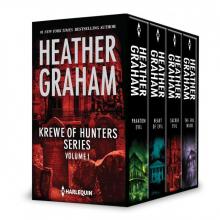 Krewe of Hunters, Volume 1: Phantom Evil ; Heart of Evil ; Sacred Evil ; The Evil Inside
Krewe of Hunters, Volume 1: Phantom Evil ; Heart of Evil ; Sacred Evil ; The Evil Inside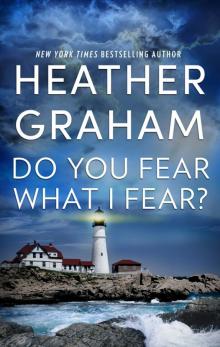 Do You Fear What I Fear?
Do You Fear What I Fear?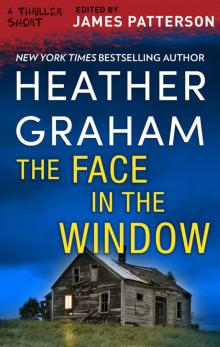 The Face in the Window
The Face in the Window Krewe of Hunters, Volume 3: The Night Is WatchingThe Night Is AliveThe Night Is Forever
Krewe of Hunters, Volume 3: The Night Is WatchingThe Night Is AliveThe Night Is Forever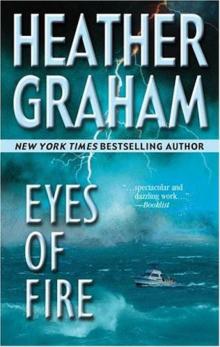 Eyes of Fire
Eyes of Fire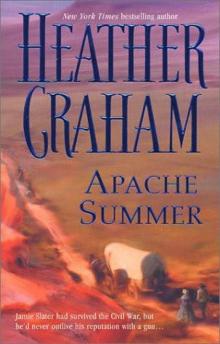 Apache Summer sb-3
Apache Summer sb-3 Sensuous Angel
Sensuous Angel In the Dark
In the Dark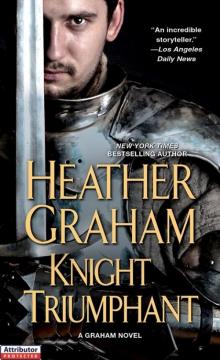 Knight Triumphant
Knight Triumphant Hours to Cherish
Hours to Cherish Tender Deception
Tender Deception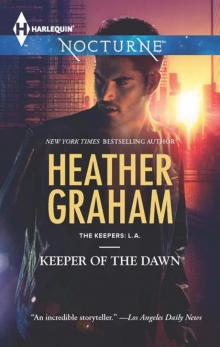 Keeper of the Dawn tkl-4
Keeper of the Dawn tkl-4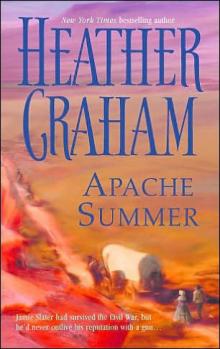 Apache Summer
Apache Summer Between Roc and a Hard Place
Between Roc and a Hard Place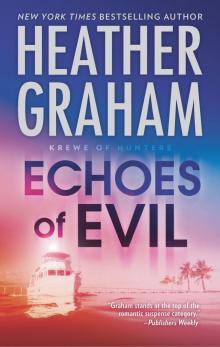 Echoes of Evil
Echoes of Evil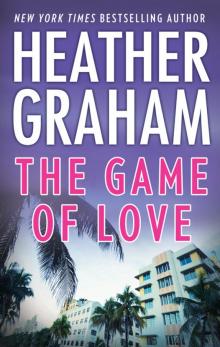 The Game of Love
The Game of Love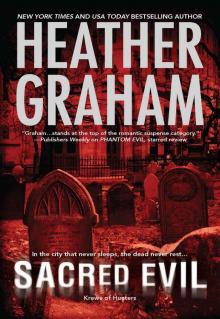 Sacred Evil (Krewe of Hunters)
Sacred Evil (Krewe of Hunters)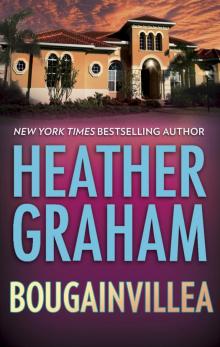 Bougainvillea
Bougainvillea Tender Taming
Tender Taming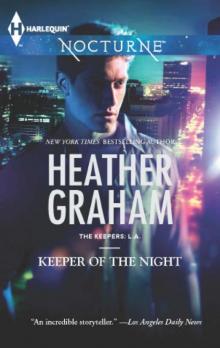 Keeper of the Night (The Keepers: L.A.)
Keeper of the Night (The Keepers: L.A.)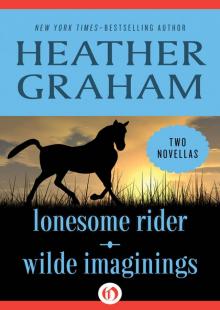 Lonesome Rider and Wilde Imaginings
Lonesome Rider and Wilde Imaginings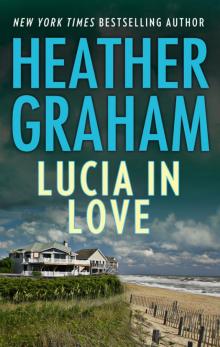 Lucia in Love
Lucia in Love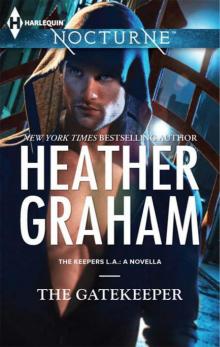 The Gatekeeper
The Gatekeeper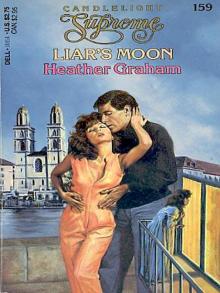 Liar's Moon
Liar's Moon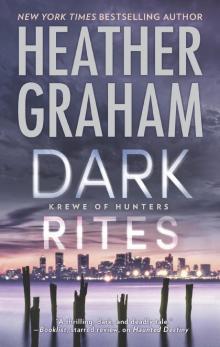 Dark Rites--A Paranormal Romance Novel
Dark Rites--A Paranormal Romance Novel A Season for Love
A Season for Love Krewe of Hunters, Volume 6: Haunted Destiny ; Deadly Fate ; Darkest Journey
Krewe of Hunters, Volume 6: Haunted Destiny ; Deadly Fate ; Darkest Journey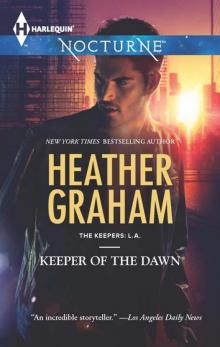 Keeper of the Dawn (The Keepers: L.A.)
Keeper of the Dawn (The Keepers: L.A.)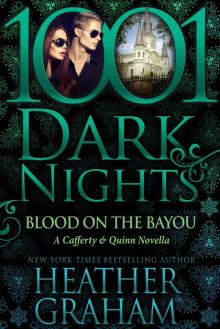 Blood on the Bayou: A Cafferty & Quinn Novella
Blood on the Bayou: A Cafferty & Quinn Novella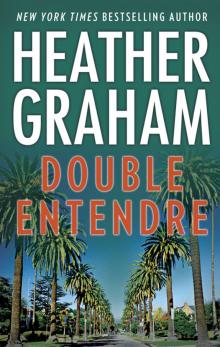 Double Entendre
Double Entendre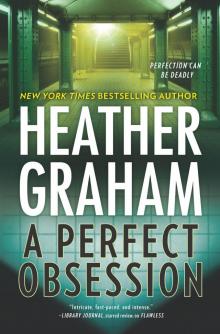 A Perfect Obsession--A Novel of Romantic Suspense
A Perfect Obsession--A Novel of Romantic Suspense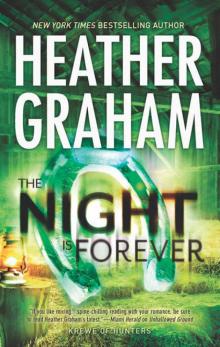 The Night Is Forever koh-11
The Night Is Forever koh-11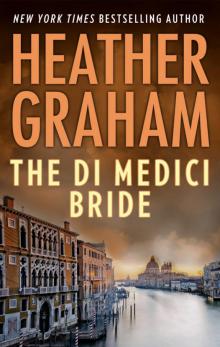 The Di Medici Bride
The Di Medici Bride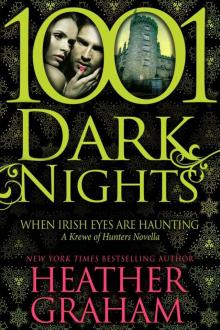 When Irish Eyes Are Haunting: A Krewe of Hunters Novella
When Irish Eyes Are Haunting: A Krewe of Hunters Novella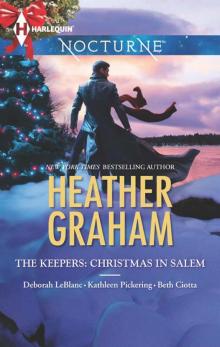 The Keepers: Christmas in Salem: Do You Fear What I Fear?The Fright Before ChristmasUnholy NightStalking in a Winter Wonderland (Harlequin Nocturne)
The Keepers: Christmas in Salem: Do You Fear What I Fear?The Fright Before ChristmasUnholy NightStalking in a Winter Wonderland (Harlequin Nocturne)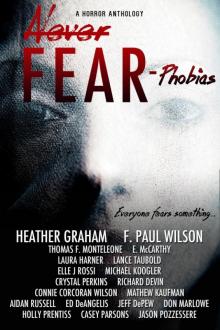 Never Fear
Never Fear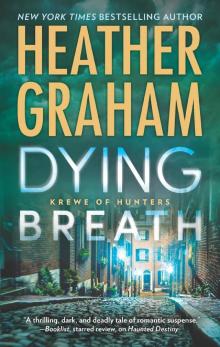 Dying Breath--A Heart-Stopping Novel of Paranormal Romantic Suspense
Dying Breath--A Heart-Stopping Novel of Paranormal Romantic Suspense If Looks Could Kill
If Looks Could Kill This Rough Magic
This Rough Magic Heather Graham's Christmas Treasures
Heather Graham's Christmas Treasures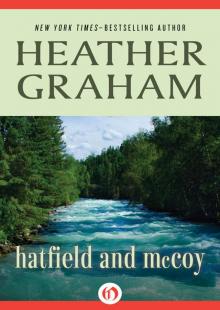 Hatfield and McCoy
Hatfield and McCoy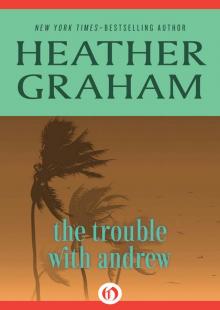 The Trouble with Andrew
The Trouble with Andrew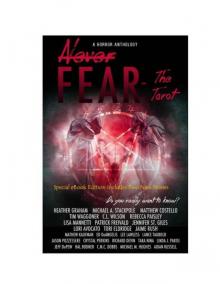 Never Fear - The Tarot: Do You Really Want To Know?
Never Fear - The Tarot: Do You Really Want To Know?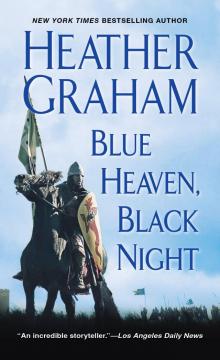 Blue Heaven, Black Night
Blue Heaven, Black Night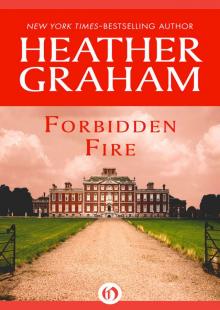 Forbidden Fire
Forbidden Fire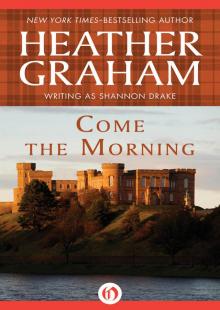 Come the Morning
Come the Morning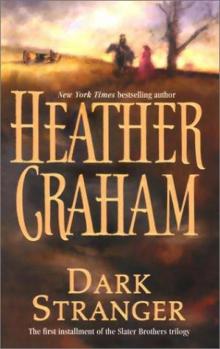 Dark Stranger sb-4
Dark Stranger sb-4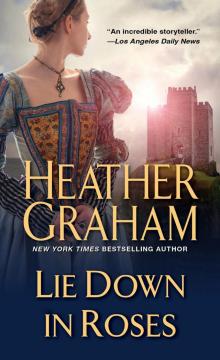 Lie Down in Roses
Lie Down in Roses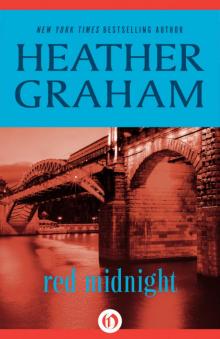 Red Midnight
Red Midnight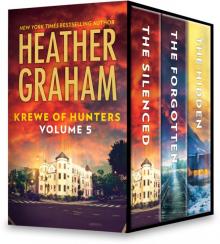 Krewe of Hunters Series, Volume 5
Krewe of Hunters Series, Volume 5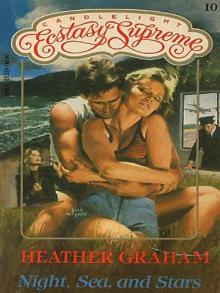 Night, Sea, And Stars
Night, Sea, And Stars Snowfire
Snowfire Quiet Walks the Tiger
Quiet Walks the Tiger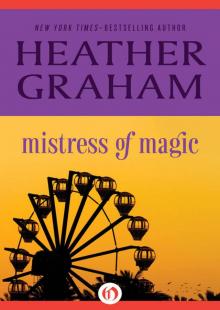 Mistress of Magic
Mistress of Magic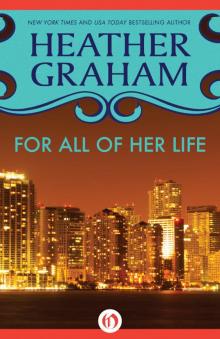 For All of Her Life
For All of Her Life Runaway
Runaway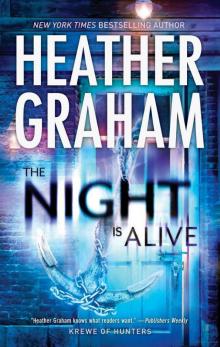 The Night Is Alive koh-10
The Night Is Alive koh-10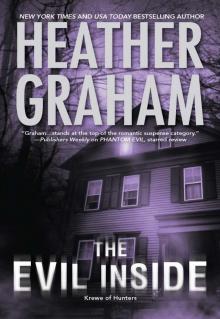 The Evil Inside (Krewe of Hunters)
The Evil Inside (Krewe of Hunters)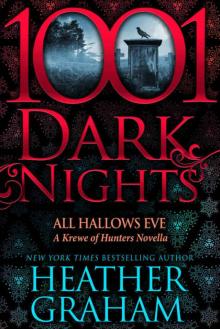 All Hallows Eve: A Krewe of Hunters Novella (1001 Dark Nights)
All Hallows Eve: A Krewe of Hunters Novella (1001 Dark Nights)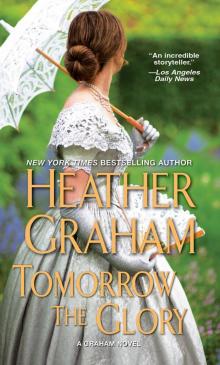 Tomorrow the Glory
Tomorrow the Glory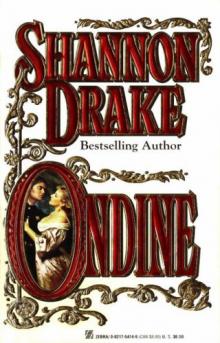 Ondine
Ondine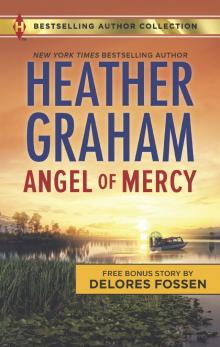 Angel of Mercy & Standoff at Mustang Ridge
Angel of Mercy & Standoff at Mustang Ridge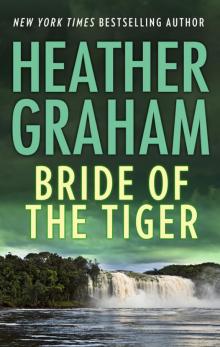 Bride of the Tiger
Bride of the Tiger When Next We Love
When Next We Love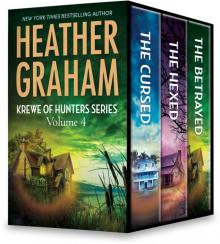 Heather Graham Krewe of Hunters Series, Volume 4
Heather Graham Krewe of Hunters Series, Volume 4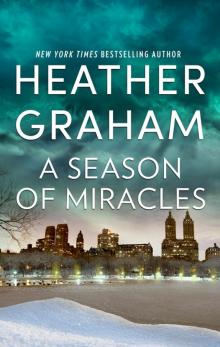 A Season of Miracles
A Season of Miracles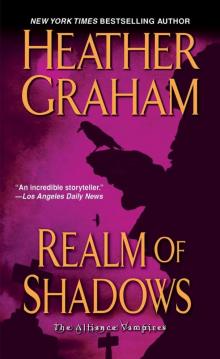 Realm of Shadows (Vampire Alliance)
Realm of Shadows (Vampire Alliance)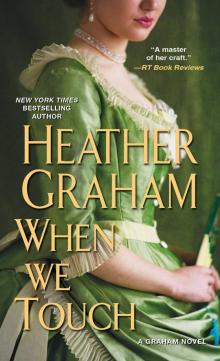 When We Touch
When We Touch Serena's Magic
Serena's Magic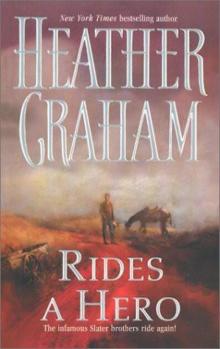 Rides a Hero sb-2
Rides a Hero sb-2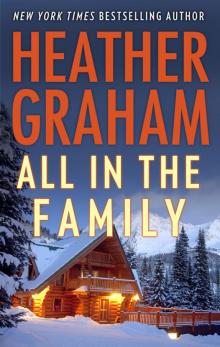 All in the Family
All in the Family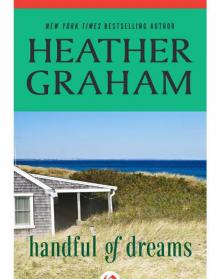 Handful of Dreams
Handful of Dreams A Stranger in the Hamptons
A Stranger in the Hamptons Krewe of Hunters, Volume 2: The Unseen ; The Unholy ; The Unspoken ; The Uninvited
Krewe of Hunters, Volume 2: The Unseen ; The Unholy ; The Unspoken ; The Uninvited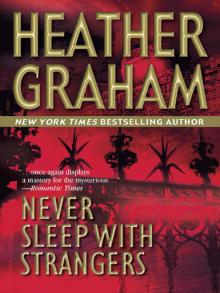 Never Sleep With Strangers
Never Sleep With Strangers Eden's Spell
Eden's Spell A Magical Christmas
A Magical Christmas Forever My Love
Forever My Love King of the Castle
King of the Castle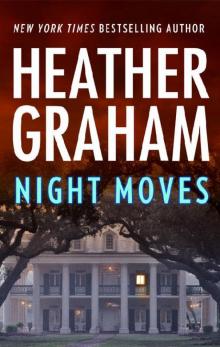 Night Moves (60th Anniversary)
Night Moves (60th Anniversary) The Island
The Island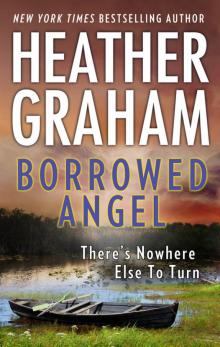 Borrowed Angel
Borrowed Angel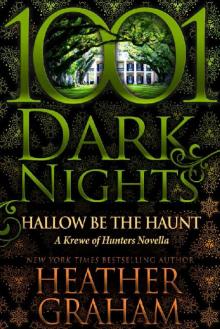 Hallow Be the Haunt: A Krewe of Hunters Novella
Hallow Be the Haunt: A Krewe of Hunters Novella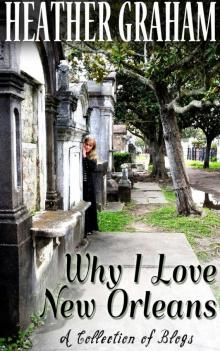 Why I Love New Orleans
Why I Love New Orleans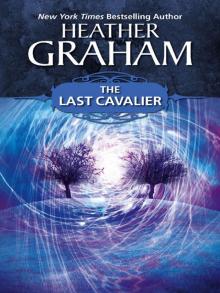 The Last Cavalier
The Last Cavalier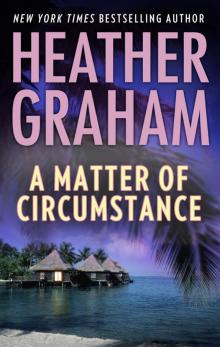 A Matter of Circumstance
A Matter of Circumstance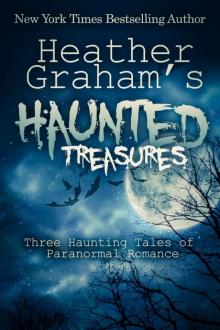 Heather Graham's Haunted Treasures
Heather Graham's Haunted Treasures Tempestuous Eden
Tempestuous Eden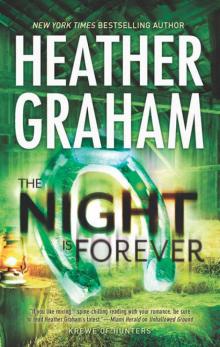 Krewe 11 - The Night Is Forever
Krewe 11 - The Night Is Forever